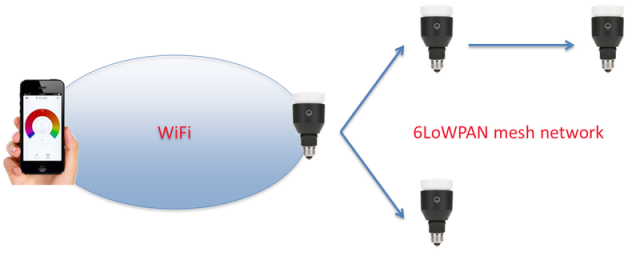In the latest cautionary tale involving the so-called Internet of things, white-hat hackers have devised an attack against network-connected lightbulbs that exposes Wi-Fi passwords to anyone in proximity to one of the LED devices.
The attack works against LIFX smart lightbulbs, which can be turned on and off and adjusted using iOS- and Android-based devices. Ars Senior Reviews Editor Lee Hutchinson gave a good overview here of the Philips Hue lights, which are programmable, controllable LED-powered bulbs that compete with LIFX. The bulbs are part of a growing trend in which manufacturers add computing and networking capabilities to appliances so people can manipulate them remotely using smartphones, computers, and other network-connected devices. A 2012 Kickstarter campaign raised more than $1.3 million for LIFX, more than 13 times the original goal of $100,000.
According to a blog post published over the weekend, LIFX has updated the firmware used to control the bulbs after researchers discovered a weakness that allowed hackers within about 30 meters to obtain the passwords used to secure the connected Wi-Fi network. The credentials are passed from one networked bulb to another over a mesh network powered by 6LoWPAN, a wireless specification built on top of the IEEE 802.15.4 standard. While the bulbs used the Advanced Encryption Standard (AES) to encrypt the passwords, the underlying pre-shared key never changed, making it easy for the attacker to decipher the payload.
Read 4 remaining paragraphs | Comments
